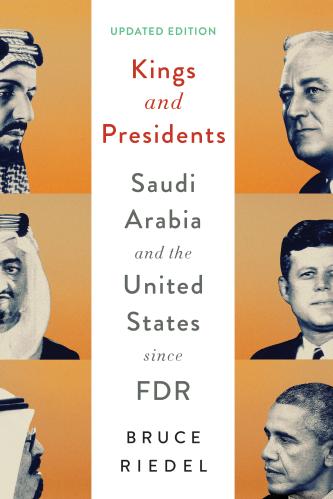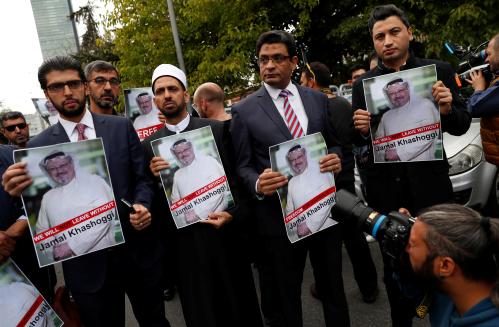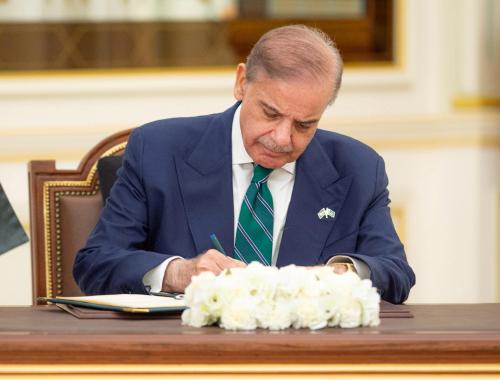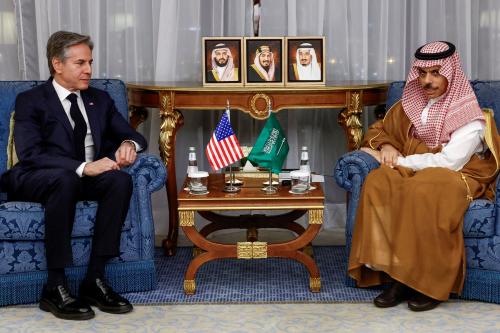Bad allies, particularly in the Middle East where they abound, have been a recurring problem for successive U.S. administrations. In the wake of Jamal Khashoggi’s disappearance, it is time to call Saudi Arabia’s bluff, argues Shadi Hamid. This piece originally appeared in The Atlantic.
Donald Trump’s Middle East policy is many things, but it is not incoherent. At the core of the president’s approach has been a stark redrawing of the friend-enemy distinction: doubling down on support, often unquestioning, for allies like Saudi Arabia and Israel, while refocusing the near-entirety of American ire on Iran.
That Trump has bet big on the de facto leader of Saudi Arabia, Mohamed bin Salman, makes the Saudis’ disappearing and likely assassination of dissident Jamal Khashoggi in their Istanbul consulate—“monstrous” on its own terms—a different sort of escalation. For Trump, this has been personal. His son-in-law and adviser Jared Kushner has worked to develop a close relationship with bin Salman, colloquially known as MbS, seeing the young crown prince as a strong partner in isolating Iran and softening Arab enmity toward Israel.
In Trump’s world, friends—particularly friends that are both Arab and authoritarian—are to be criticized as little as possible, especially on low priorities for the administration like human rights. This hands-off approach has emboldened and empowered MbS to increasingly destructive effect over the past year and a half, offering a reminder that the prospect of U.S. pressure—if not actual U.S. pressure—serves as a constraint on allies that tend towards overreach.
What is both striking and telling is how half-hearted and generally uninterested the Saudis have been in countering evidence they assassinated Khashoggi. (Take for example the Saudi ambassador’s suggestion to Senator Bob Corker that their consulate surveillance video only “live-streams.”) But this is precisely what makes Saudi Arabia’s behavior in this episode even more reckless than the ongoing crackdown on even its milder critics or its increasingly callous disregard for human life in the Yemen war. Trump has invested political capital and extended unprecedented goodwill to MbS, drawing considerable criticism in the process. In a sense, this has been Trump’s “big bet,” perhaps his biggest one in the Middle East. As Axios’s Jonathan Swan put it, “The Trump administration, led by Jared Kushner, made about as big a bet on MbS the visionary-reformer and the Saudis as it’s possible for a US admin to make.” The goodwill has not been reciprocated. Rather, MbS is in effect taunting Trump, gloating in his ability to get away with anything.
A supposedly close friend acting in such a manner could be—and perhaps should be—taken by Trump as a personal affront. This further and perhaps even conclusively invalidates Trump’s decision to orient America’s Middle East strategy around a new and changing Saudi Arabia. Trump’s recent comments were somewhat unclear, but he seemed bothered that he even had to talk about it: “I am concerned about that,” he said in response to a question about Khashoggi’s disappearance. “I don’t like hearing about it and hopefully that will sort itself out. Right now, nobody knows anything about it. There’s some pretty bad stories about it. I do not like it.”
With Trump, however, it is always hard to tell where his passions may lead him. Trump may not care enough about the assassination of a prominent journalist, who was also a U.S. resident and a Washington Post columnist. But the events may also awaken the side of Trump that, first as a candidate and now as president, has suggested an impatience with Saudi Arabia and its military dependence on the United States. In an October 2 rally in Southaven, Mississippi, Trump riffed, saying something that received little attention at the time but in any other administration would have likely have been front-page news: “We protect Saudi Arabia—would you say they’re rich? And I love the king, King Salman, but I said, ‘King we’re protecting you. You might not be there for two weeks without us. You have to pay for your military, you have to pay.”
It is little surprise that Khashoggi’s disappearance has provoked not just frustration from U.S. politicians, but anger, including from Senator Lindsey Graham, who said there would be “hell to pay” if Khashoggi was assassinated. This is the danger of transactional relationships with countries and rulers that not only don’t share our values, but often don’t share our interests either. To outsource our Middle East policy to a reckless leader who appears to have such disrespect for the United States—and its support for his country—was always a mistake. Now it is also an embarrassment.
Even for those who care little about human rights in the Middle East, the disappearance of Khashoggi calls into question the reliability of an ally that has insisted on acting in such brazen fashion. If Trump’s foreign policy really is about “America first,” then allies who show blatant disregard for America, American values, and American interests should incur significant costs. What might those costs be? This is what the conversation over the future of U.S.-Saudi relationship must turn to. Trump is at least partly correct about Saudi dependence on the United States. As my colleague Bruce Riedel writes, the Saudi Air Force is “is entirely dependent on American and British support for its air fleet of F15 fighter jets, Apache helicopters, and Tornado aircraft. If either Washington or London halts the flow of logistics, the [air force] will be grounded.”
Bad allies, particularly in the Middle East where they abound, have been a recurring problem for successive U.S. administrations. U.S. policymakers need—or think they need—them, even when those allies go out of their way to undermine their relationships with the United States. Those allies believe—mostly correctly—that the United States will express concern and complain, but ultimately do little. The worst offenses will be forgotten in the name of national-security interests, as they have been so many times before. It is time to call Saudi Arabia’s bluff.
The Brookings Institution is committed to quality, independence, and impact.
We are supported by a diverse array of funders. In line with our values and policies, each Brookings publication represents the sole views of its author(s).







Commentary
Saudi Arabia is taunting Trump
October 12, 2018